I wrote a post a few weeks ago about the construction of motherhood in Alien: Isolation and Among the Sleep, and since then, I’ve been playing Rise of the Tomb Raider and thinking a lot about how parenthood is constructed in this game as well. Indeed, it would seem that, in Rise of the Tomb Raider, instead of motherhood, what we are presented with is fatherhood and the manner in which Lara’s father motivates her actions throughout the game. And while I’ve only played through a few hours of the game so far, what I want to do in this post is explore the manner in which Lara’s relationship with her father provides a framework through which we engage with her character, think about how this framework converses with other parent-child relationships, and unpack the implications all this might have for the way heteronormative nuclear family structures are perpetuated as being the stakes that are often at risk.
(Some light spoilers ahead.)
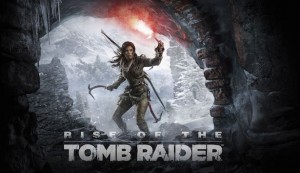 The exposition at the beginning of Rise of the Tomb Raider reveals the fact that Lara embarks on her journeys to Syria and Siberia on a quest for the key to immortality—a quest motivated by her deceased father. Indeed, as we come to find out, “Lara’s father was chasing a myth, or so people thought, and in life it seems that Lara didn’t support his obsession. But now, with Lord Croft gone and her appetite for adventure on the rise, Lara feels compelled to finish the family work.” And it would seem that she is motivated to do so by “her need to honor her father and make peace for her distance from him by completing what he started.” As a result, the connection between Lara and her father has been constructed as a vital means of framing not just Lara’s actions or motivations but her character as well—it highlights Lara’s role as a daughter.
The exposition at the beginning of Rise of the Tomb Raider reveals the fact that Lara embarks on her journeys to Syria and Siberia on a quest for the key to immortality—a quest motivated by her deceased father. Indeed, as we come to find out, “Lara’s father was chasing a myth, or so people thought, and in life it seems that Lara didn’t support his obsession. But now, with Lord Croft gone and her appetite for adventure on the rise, Lara feels compelled to finish the family work.” And it would seem that she is motivated to do so by “her need to honor her father and make peace for her distance from him by completing what he started.” As a result, the connection between Lara and her father has been constructed as a vital means of framing not just Lara’s actions or motivations but her character as well—it highlights Lara’s role as a daughter.
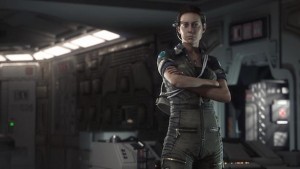 This brings to mind the manner in which Amanda Ripley is characterized in Alien: Isolation (a character and game I’ve discussed a few times now and which I find myself continuing to come back to) because her motivation throughout the game, too, is framed through her construction as a daughter. But instead of this role being constructed through a father/daughter relationship, hers is constructed through her relationship with her mother, Ellen Ripley, who is lost in space and for whom Amanda searches. But, it seems that Ellen Ripley is a more tangible motivating force for Amanda than Richard Croft is for Lara, for while Lara seems driven by her father’s memory and quest, Amanda literally searches for her mother.
This brings to mind the manner in which Amanda Ripley is characterized in Alien: Isolation (a character and game I’ve discussed a few times now and which I find myself continuing to come back to) because her motivation throughout the game, too, is framed through her construction as a daughter. But instead of this role being constructed through a father/daughter relationship, hers is constructed through her relationship with her mother, Ellen Ripley, who is lost in space and for whom Amanda searches. But, it seems that Ellen Ripley is a more tangible motivating force for Amanda than Richard Croft is for Lara, for while Lara seems driven by her father’s memory and quest, Amanda literally searches for her mother.
I wonder if these different representations of daughterhood and the different motivations and relationships these daughters have speak to certain patterns or conventions of the broader genres in which each game is entrenched. Indeed, mother-child relationships seem to be a preoccupation of the horror genre, being especially prevalent in films like Rosemary’s Baby and Carrie. But perhaps it might be said that father-child relationships seem to reoccur throughout the adventure genre, for we see such relationships in Indiana Jones’ ties to his father Henry in Indiana Jones and the Last Crusade, and it might also be said that we see this, too, in Nathan Drake’s relationship with Victor Sullivan (a sort of father figure) in the Uncharted series. As such, I wonder how these conventions affect the different ways motherhood and fatherhood might be constructed, for while the mothers in horror narratives often seem to be constructed as either monsters or victims, fathers in adventure stories often seem to be constructed as mentors or guides.
And I also wonder how all this affects the ways we think about protagonists like Amanda and Lara—I wonder how their roles as daughters affect they way we think about their roles as heroes. To be sure, I don’t think that representations of daughterhood are necessarily a bad thing, especially since Lara’s construction as such seems, at least, to be an effort to reveal her to be a more multi-dimensional character. But something that concerns me about such constructions is the manner in which it might perpetuate the defining of women through domestic roles—defining them through their connections to the family and, thus, their connections to the domestic sphere. And I’m also concerned with how all this might reinvoke or reinscribe the heteronormative nuclear family as what is at stake in all this—because both Amanda and Lara (albeit in different ways) work to maintain connections with their parents and, thus, maintain their family ties.
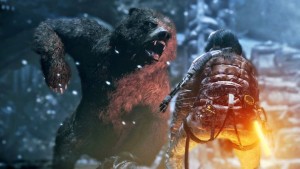 Just as I don’t think that representations of daughterhood are a bad thing, I also don’t think representations of maintained family ties are inherently problematic either. But, what I think bears pointing out in the cases of Amanda and Lara is the fact that the use of parents as the motivations for these women’s quests seems to frame the way such quests are also used as the means through which these characters define the self. And in this way, such definitions and constructions of the self are enacted through family bonds; such definitions of the self are enacted through the roles of other people. And, as such, in the case of Lara Croft, Lara’s strength is defined, in part, as being constructed as a result of her dedication to finishing her father’s work—her strength is constructed as being a result of the influence of her father.
Just as I don’t think that representations of daughterhood are a bad thing, I also don’t think representations of maintained family ties are inherently problematic either. But, what I think bears pointing out in the cases of Amanda and Lara is the fact that the use of parents as the motivations for these women’s quests seems to frame the way such quests are also used as the means through which these characters define the self. And in this way, such definitions and constructions of the self are enacted through family bonds; such definitions of the self are enacted through the roles of other people. And, as such, in the case of Lara Croft, Lara’s strength is defined, in part, as being constructed as a result of her dedication to finishing her father’s work—her strength is constructed as being a result of the influence of her father.
Now, again, I want to stress that I haven’t yet finished Rise of the Tomb Raider, so all these thoughts are currently preliminary and hastily-formed ones. I’m sure they’ll develop further as I continue playing. Maybe they’ll even change completely. But, at the very least, I can say for sure that the manner in which daughterhood, fatherhood, and family are represented in the game—and the manner in which they converse with other constructions—seem to be an important framework through which we engage with Lara’s characterization and the events that unfold throughout her story.

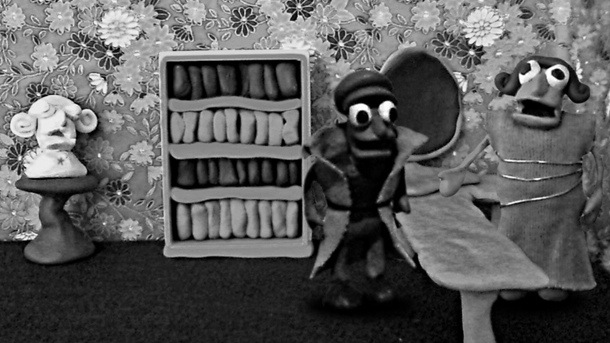

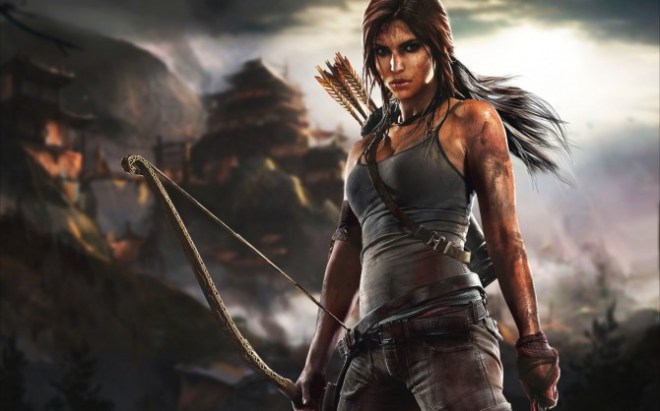

2 thoughts on “Daddy Issues: Constructions of Daughterhood and Parents as Plot Devices”
Another good piece :).
It is interesting that Lara seeks the key to immortality. Seems rather symbolic of the role of the child in an idealised heteronormative family. Immortality through ones children and all that.
And another good point! I’m interested to see how this symbolism bears out as I keep playing…thanks for pointing this out!